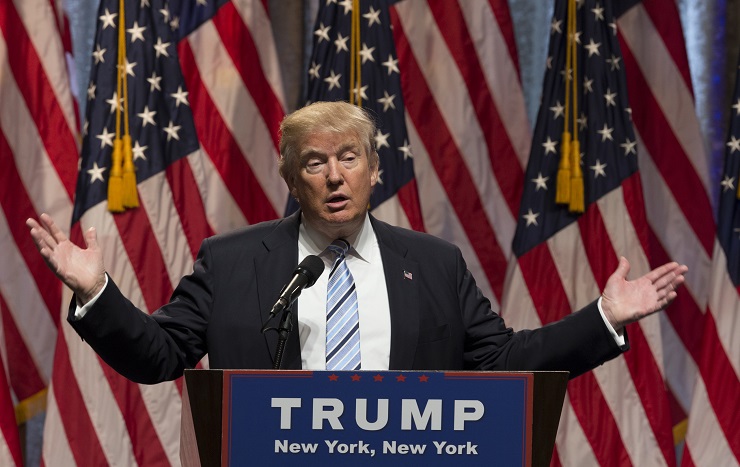With everyday passing, it is becoming clear that the US-China trade deal will eventually unravel, paving the way for a long-term standoff, even if not a full-fledged ‘cold war’, between the two super powers. As recent remarks made by the US National Security Advisor (NSA), Robert O’Brien, showed, the US is planning ‘more steps’ to ‘correct’ its relations with China. The series of steps, to quote him, “are just the start as America corrects 40 years of a one-sided, unfair relationship with China that has severely affected our nation’s economic and, recently, political well-being. Just like the tariffs that were imposed by the President on unfair trade practices early in his Administration, there is more to come.”
While the US has recently passed legislation that would allow it to sanction China, an important part of O’Brien’s definition of “more” is a US concerted effort towards convincing its allies all over the world to follow the US in its footsteps as far as their political and economic relations with China are concerned. “Together with our allies and partners, we will resist the Chinese Communist Party’s efforts to manipulate our people and our governments, damage our economies, and undermine our sovereignty. The days of American passivity and naivety regarding the People’s Republic of China are over”, added O’Brien.
However, whereas the US is obviously heating things up, it is highly unlikely that the US will have many ‘allies and partners’ willing to join the US bandwagon. With everyday passing, it is becoming evident that most of the traditional US allies are increasingly following independent policies.
This is especially true of Europe where China, despite the US’ persistent pressure on Europe to cut-off ties, continues to expand its economic reach, and in fact, is filing the gap being increasingly left by the US itself. Europe, obviously, does not mind establishing relationship with the world’s currently least wounded, or the mots stable, economy.
Elsewhere in Asia, for instance, even an old US ally, Japan, is treading a different path. While conventional wisdom would have Japan on the US side and see it taking steps that would lock into the on-going ‘trade-war’, Japan’s recent steps indicate that its attempts are actually geared towards avoiding tense relations with China.
A week ago, an announcement made by Japanese Defense Minister Taro Kono confirmed that Japan would cancel the purchase of a multi-billion-dollar ballistic missile defense system made by Lockheed Martin. While this deal was close to the US president’s heart, the cancellation comes against an increasing realisation within Japan about how a forward deployment of US missiles on its soil will put its complex and largely inter-dependent relations with China in a serious jeopardy. The decision to buy this missile system was based upon a “naïve understanding” of the issues related to it, said Japan’s minister.
Whereas the deployment of the Aegis Ashore missile system as a part of its strategic deployment in the Asia-Pacific region would have boosted the US capability to monitor China and Russia, Japan’s abrupt cancellation of the deal, particularly at a time when the Chinese were already showing their grave concerns about it, does strongly show that the US influence even on its traditional allies is decreasing fast.
Nothing better illustrates the decreasing US economic influence than the recent announcement by the member countries of The Regional Comprehensive Economic Partnership (RCEP), confirming that the agreement will be signed in 2020. RCEP, which is by far the world’s biggest trade pact, brings together the 10-member Association of Southeast Asian Nations (ASEAN), China, Japan, South Korea, Australia and New Zealand. With US allies, including Japan and Australia, participating in a trade-pact involving China, the question of how and to what extent can the US really pull its allies in its trade-war with China becomes crucial.
For the trump administration, this question holds two-fold significance. First, these key changes taking place are fundamentally different from Trump’s advocacy of bi-lateral trade arrangements. On the other hand, the increasing drive towards ‘regionalism’ is highly likely to push the US further away from the regional geo-politics.
Secondly, the fact that current US policies vis-à-vis China are deeply rooted in Trump’s re-election strategy is pushing the US allies more towards following rather long-term and consistent policies than merely follow the US dictates and becoming embroiled in the US’ ‘new cold war.’
Therefore, while Trump’s portrayal of himself as ‘the toughest president on China’ may have some implications in the domestic political arena, he is obviously losing in the international arena—Europe Asia & Pacific region—where China’s acceptance as an economic partner is increasing. Even according to the leading US think-tanks, the EU has come to the conclusion that an economic partnership with China is both an opportunity and a necessity.
While there are obviously countries, such as Turkey, trying to present themselves to the US as its allies in establishing alternative sources of global supply chain independent of China, the ever-increasing pro-China global trend is too obvious to ignore. Ironically enough, it is this very increasing acceptance of China that has, in the first place, forced the US to start a ‘trade-war.’ The intent was and still is to destroy the Chinese economy and thus put a permanent end to the competition that the Asian giant is offering to the US’ unilateral domination.
However, as the fast-changing global scenario shows, the Trump’s ‘trade-war’ has backfired. Internationally, the US is losing allies. Domestically, the uncontrolled spread of COVID-19 has created an economic havoc, adding to the loses the US has been suffering due to its ‘trade-war’ with China. The US tariffs have produced no better results. On the contrary, China’s recent decision to stop buying agricultural goods from the US will bite Trump’s re-election even harder.
Salman Rafi Sheikh, research-analyst of International Relations and Pakistan’s foreign and domestic affairs, exclusively for the online magazine “New Eastern Outlook”.

